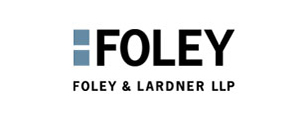Federal Circuit Clarifies Venue Rule for Foreign Defendants Post-TC Heartland

The Federal Circuit today in In re HTC Corp., Misc. 2018-130 (May 5, 2018), followed the holding of the Supreme Court in Brunette Machine Works, Ltd. v. Kockum Industries, Inc., 406 U.S. 706 (1972), that venue is proper as to a foreign defendant in any district. In so doing, the court found that recent amendments to the venue statutes did not change the conclusion in Brunette and rejected the argument that the patent venue statute should apply to foreign defendants.
In TC Heartland LLC v. Kraft Foods Group Brands LLC, 137 S. Ct. 1514 (2017), the Supreme Court ruled that venue in patent cases is governed by the patent venue statute, 28 U.S.C. § 1400(b), and overruled a line of cases from the Federal Circuit that had instead applied the general venue statute, 28 U.S.C. § 1391. Beginning in 1990 with VE Holding Corp. v. Johnson Gas Appliance Co., 917 F.2d 1574, 1578 (Fed. Cir. 1990), the Federal Circuit held that a 1988 amendment to § 1391 meant that the general venue statute, and not the patent venue statute, governed venue in patent cases. The Supreme Court disagreed that the relatively minor amendment to § 1391 could have been intended by Congress to abrogate the patent venue statute.
The Court’s holding in TC Heartland has had a dramatic impact on the patent litigation landscape, significantly reducing the availability of some popular patent forums like the Eastern District of Texas. However, left undecided in TC Heartland was its effect on foreign defendants. Indeed, the TC Heartland Court specifically declined to opine on whether § 1400(b) applied to foreign corporations:
The parties dispute the implications of petitioner’s argument for foreign corporations. We do not here address that question, nor do we express any opinion on this Court’s holding in Brunette Machine Works, Ltd. v. Kockum Industries, Inc., 406 U.S. 706, 92 S.Ct. 1936, 32 L.Ed.2d 428 (1972) (determining proper venue for foreign corporation under then existing statutory regime).
TC Heartland, 137 S. Ct. at 1520 n.2.
The Federal Circuit today found that venue for foreign corporations is governed by the general venue statute, which provides that “a defendant not resident in the United States may be sued in any judicial district.” 28 U.S.C. § 1391(c)(3). The court based its ruling on the long statutory and judicial history, including Supreme Court decisions in 1893 and 1972, that aliens can be sued in any judicial district. And, as the Supreme Court had reasoned in TC Heartland, the Federal Circuit found that subsequent amendments to the venue statute were not sufficient to overcome this long-established rule. Accordingly, it is now clear that, subject to questions of personal jurisdiction, a foreign corporation can be sued in any district.
